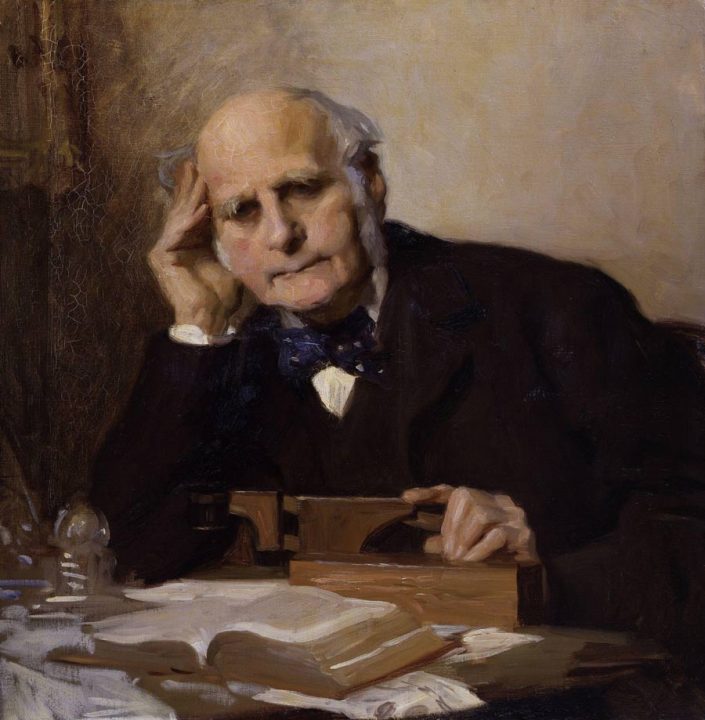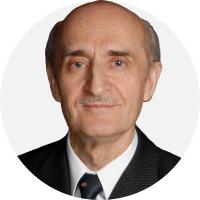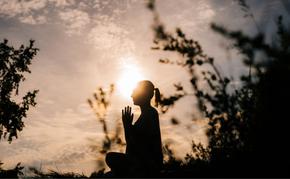The views expressed in our content reflect individual perspectives and do not represent the authoritative views of the Baha'i Faith.
Since time immemorial, prayers have been offered by individuals during times of sickness and collectively in ceremonies to celebrate the Divine Reality and to ask for blessings.
Current scientific exploration of metaphysical issues — such as the dynamics of prayer and meditation in healing — is fraught with challenges because of our inability to measure non-material aspects of these phenomena. On the other hand, Baha’u’llah, the prophet and founder of the Baha’i Faith, expounded on the future of science and stated that one of the two signs for the coming of age of the human race will be the emergence of science as a “divine philosophy.” “This is an indication of the splendours of the future stupendous expansion of knowledge.” Although we are far from reaching humanity’s coming of age, we might envision the possibility that the expansion of knowledge would include unraveling the spiritual power of prayer and meditation.
“It is the language of the soul to commune with its Creator, a way of giving expression to spiritual aspirations.”
In their 2009 book “How God Changes Your Brain,” neuroscientist Andrew Newberg and therapist Mark Robert Waldman wrote that “Most dictionaries define prayer as the act of communicating with a deity, especially in the form of a request or a petition for help. Meditation, however, is commonly defined as a contemplative reflection or mental exercise designed to bring a heightened level of spiritual awareness.” For people living in ancient times, prayer was the only means of seeking solace and security. It is the language of the soul to commune with its Creator, a way of giving expression to spiritual aspirations.
As to meditation, Abdu’l Baha, the son of Baha’u’llah, said in a speech in 1913, “It is an axiomatic fact that while you meditate you are speaking with your own spirit. In that state of mind you put certain questions to your spirit and the spirit answers: the light breaks forth and the reality is revealed.”
A 2016 Gallup poll of religiosity in the United States revealed that 89% of American adults believe in God or a Universal Spirit. In another survey, 87% of participants said that religion was important in their lives. Additional research shows that 76% of Americans pray daily, with many acknowledging that they turn to prayers for assistance to overcome disease.

While the adherents of religions exercise the practice of prayer as a matter of faith, scientists have been interested in the health benefits of prayer since at least the 19th century. In 1872 Sir Francis Galton, for instance, conducted a retrospective study of the effects of prayer on the British monarchs. In more recent times, similar research has been vigorously pursued. Its goal is to discover the nature and depth of prayer’s healing effect on distress and disease as well as on people’s well-being. In a carefully designed study of 990 cardiac patients using randomized, controlled, double-blind, and prospective investigation it was found that intercessory prayers may be effective as an addition to standard treatment of these patients. A Swedish study of kidney transplant patients also reported that those patients who were prayed for were better able to cope with stress and had less organ rejection.
However, some people feel that researchers who are seeking hard evidence of the power of prayer have misunderstood its nature, judging its benefits solely by its physical effect on an individual. Prayers, and meditation, for that matter, can be viewed as tools for relaxation and serenity — having neurophysiological effects on the brain, heart, blood pressure, and muscle tension. But from the perspective of religion and spirituality, they may have other effects that are not measurable by means available to science.
Abdu’l-Baha tells us, “There are two ways of healing sickness, material means and spiritual means. The first is by the use of remedies of medicine; the second consists in praying to God and in turning to Him. Both means should be used and practiced.” Medical science uses clinical observation and technology to diagnose and treat disease and to restore health. Prayer is a spiritual process that enhances healing and restores hope and wholeness. Together these two complement one another. In his 2002 book “Inner Quest,” author Pandit Rajmani Tigunait wrote that “Spirituality is a complete science that entails a comprehensive study of the intrinsic nature of the soul and its relationship both to the external world and to universal consciousness.”
In a talk in London in 1913, Abdu’l-Baha stated that “Meditation is the key to opening the doors of mysteries; in that subjective mood he is immersed in the ocean of spiritual life and can unfold the secrets of things-in-themselves. To illustrate this, think of man as endowed with two kinds of sight; when the power of insight is being used the outward power of vision does not see.” Abdu’l-Baha nevertheless draws our attention to the fact that “some thoughts are useless… But if the faculty of meditation is bathed in the inner light and characterized with divine attributes, the results will be confirmed.”
Exploring the mystery of the effect of prayer and meditation on our mind and soul is a daunting task. Research in neuroscience has shown that meditation and prayer have beneficial effects on the frontal cortex and limbic system of the brain, bringing a sense of joy, love, and optimism. The effect of meditation on the brain is particularly important because, as Newberg and Waldman wrote, “it counteracts our biological propensity to react to dangerous situation with animosity or fear. However, it also appears to make us more sensitive to the suffering of others.”
Can science find any pathway of healing through faith and prayers? As Newberg and Waldman also wrote in their book, it has been hypothesized that our neuropeptides — the transmitters of neurons — and immune system are biological pathways that may connect mental processes, including prayer and meditation. In addition, a research study at Harvard University showed that meditation might help to prevent brain degeneration and cognitive decline. The more we meditate on the Word of God, or for a specific objective, the more the thalamus — the center of information processing — in the brain is activated and increases in size. Spiritual practices can have an effect on neurotransmitters. “For example, a 65 percent increase in dopamine was found when individuals practice yoga nidra, a form of meditation in which a person maintains conscious awareness,” wrote Newberg and Waldman
Researchers have found more biologically beneficial effects from meditation than from prayer. This may be partially because there has been more research conducted with respect to the former, but it may also be due to the spiritual nature of prayer, which does not lend itself to scientific measurement. For example, scientific research has found a significant reduction in stress, anxiety, blood pressure, and suppression of the release of cortisol, also known as the stress hormone, in those who regularly meditate. Researchers have also noted a boost to the immune response, positive mood states, relaxation, and more tolerance to pain. However, while meditation and prayer may have positive physical and physiological effects on the body, such changes do not explain the mystery nor define the mechanism of such effects.
Although many research studies on the effect of prayer on healing have been favorable, some others reported negative results. This should not be surprising due to the intangible and spiritual nature of prayer, which is dependent not only on the sincerity of the individual who offers prayers but also on the wisdom of divine intervention. From a Baha’i point of view, while prayer and meditation are important and praiseworthy, people must remain mindful that ultimately it is God’s will that determines whether a cure will be granted or not.

















Comments
Sign in or create an account
Continue with Facebookor